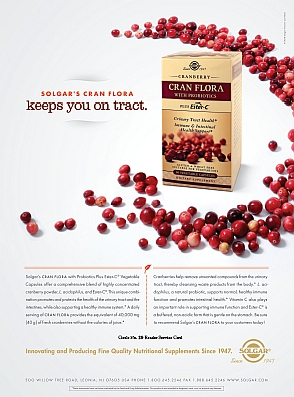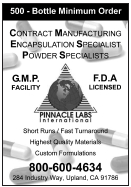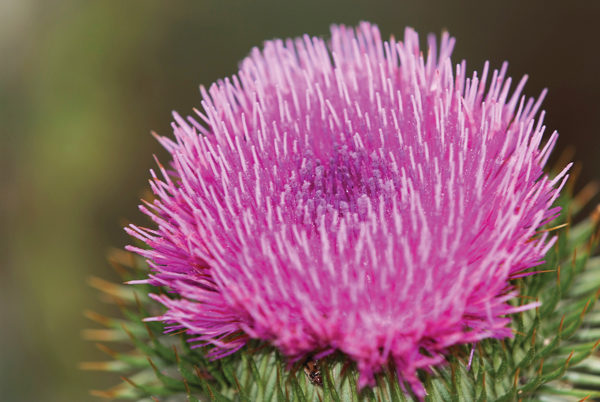What is the second largest organ in the human body? If you answered the liver, then you are correct. No one can refute what a critical role the liver plays in helping the body function as it should. But, this vital organ cannot take care of itself alone; that’s why it is so important to tell shoppers that they must do their part in promoting liver health by eating the right foods and partaking in a liver detox regimen periodically.
The Importance of Liver Detox
Several herbs promote liver health (which will be touched on later), but it is first necessary to delve into liver function. According to the National Library of Medicine, the liver cleanses the blood of toxins and impurities and helps to digest food by forming and excreting bile, a liquid that aids in food absorption and digestion (1).
 Bile contains cholesterol, too, but just how much is determined by several key factors: the amount of cholesterol the body reabsorbs in the bowels, dietary intake of cholesterol and levels of cholesterol the liver produces on its own (2). However, if the bile system and gall bladder are not functioning as they should, cholesterol can turn into gall stones, which may pose health risks (2).
Bile contains cholesterol, too, but just how much is determined by several key factors: the amount of cholesterol the body reabsorbs in the bowels, dietary intake of cholesterol and levels of cholesterol the liver produces on its own (2). However, if the bile system and gall bladder are not functioning as they should, cholesterol can turn into gall stones, which may pose health risks (2).
A balanced diet is the most effective way to promote liver health, says Columbia University (1). Such a regimen includes eating significant amounts of fruits and vegetables, consuming lean protein and eating whole grains and healthy fats (1). However, given the hectic demands in day-to-day lifestyles, it may be difficult for one to eat a well-balanced diet, so many individuals may benefit from liver cleansing.
The concept of liver detox is born from the notion that toxins are sometimes unavoidable, and can negatively affect our bodies as time goes on. These toxins may come from the consumption of caffeine and alcohol, sugar or artificial sweeteners; or from exposure to smog and pesticides or chemicals used in food production (3). The body may not discard all toxins on its own, which can be problematic for the digestive and lymph systems and the hair and skin. These toxins may cause headaches, fatigue, nausea or other problems (3). Thus, liver detox can support overall wellness. Some say that detox diets may aid in weight loss, increase energy levels and promote mental acuity.
According to The Barron Report,”By cleansing the liver, we’re talking about inducing the liver to purge all of the fats, old cholesterol deposits, gallstones, poisons, drug residues, and toxic waste stored therein” (4).
Just as there are individuals who should partake in a liver cleansing, there are those who should not as well; this list includes those who have diabetes, low blood sugar, a chronic condition, an eating disorder or a heart condition (3). Liver detoxification also is not recommended for senior citizens, children, teens and breastfeeding or pregnant women.
However, all shoppers should seek the advice of a healthcare provider before starting liver detox.
In sum, to have a successful detox diet, it is imperative to give up certain foods on a temporary basis (3). Then, the foods are gradually reintroduced into one’s diet. For instance, one might start with a liquid diet, and then move to several days of organic fruit, brown rice and steamed vegetables. Last, the individual may add various other foods (with the exception of sugar, eggs, red meat, wheat and prepackaged- or junk food) (3).
Key Herbs to Support Liver Health
Liver detox also incorporates certain nutrients like antioxidants to support healthy liver function. Following is only a smidgen of the many herbs that are said to support liver health. Milk thistle is famous in the liver support arena largely because it contains flavonoids that protect liver cells from damage by preventing toxin absorption and promoting regeneration (2, 5). Various studies suggest that components in milk thistle (such as the flavonoid known as silymarin) also may protect the liver from toxins. The silymarins (flavanolignans) accomplish this feat by making the cell wall less permeable to absorbing the chemical toxins. Silymarins also allow RNA in the liver cells to continue being created. Together, this allows the liver to be regenerated four times faster than normal (2).
It may seem odd to think that artichoke, a popular dinnertime staple, is believed to have a protective effect on liver cells. Artichoke in supplement form also may support liver regeneration and improve the liver’s function. Likewise, this powerful herb is thought to support bile production, may increase the excretion of cholesterol in bile and inhibit  cholesterol creation in the body. Various clinical trials also indicate that artichoke may support healthy triglyceride levels, too (2, 5).
cholesterol creation in the body. Various clinical trials also indicate that artichoke may support healthy triglyceride levels, too (2, 5).
Dandelion, a pretty but often pesky weed, has dual offerings; it is said to be highly effective along with being very safe (2, 5). Dandelion also may increase bile production in the liver. With the use of dandelion, toxic wastes are better excreted in the feces, which means that there are less recycled wastes for the liver to worry about. And, there is an improved capacity to deal with new, toxic wastes (5).
Many think of licorice as just a tasty and satisfying treat. But, one study showed that licorice in supplement form increased the production of interferon, which might explain licorice’s ability to protect the liver from harmful toxins (5). To this end, licorice extract may be a beneficial therapeutic for those with liver disease and hepatitis. Notes Memorial Sloan- Kettering Cancer Center, “Clinical trials in Japan have used a licorice extract (containing glycyrrhizin) to help with hepatitis B and C, and have shown that glycyrrhizin reduces liver disease” (6). WF
References
1. Livestrong.com, “Liver Detox Treatment,” www.livestrong.com/article/ 261636-liver-detox-treatment, accessed Oct. 5, 2010.
2. Vitamins To Health, “Liver Detoxification Herbs,” www.vitaminstohealth. com/liver-detoxification.html, accessed Oct. 5, 2010.
3. WebMd, “Natural Liver Detox Diets (Liver Cleansing),” www.webmd.com/balance/natural-liver-detox-diets-liver-cleansing, accessed Oct. 5, 2010.
4. J. Barron, The Barron Report, www.jonbarron.org/detoxing-health-program/08- 01-1999.php, Vol. 7, Issue. 4 (1999), accessed Oct. 12, 2010.
5. NaturalNews.com, “Detox Your Liver with These Herbs,” www.naturalnews. com/027607_liver_detox_herbs.html, accessed Oct. 5, 2010.
6. Livestrong.com, “Benefits of Licorice Root Tea,” www.livestrong.com/article/ 104810-benefits-licorice-root-tea/, accessed Oct. 11, 2010.
Published in WholeFoods Magazine, December 2010









